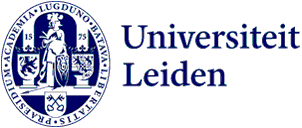
Five new Teaching Fellows appointed
Max van Lent, Aris Politopoulos, Emily Strange, Claire Vergerio and Astrid Van Weyenberg have joined the Leiden University Teachers’ Academy. Lecturers at the Academy exchange experiences, develop their skills and share their knowledge and expertise with the rest of the university, for example via the Leiden Teachers’ Blog.
The Leiden University Teachers’ Academy (LTA) consists of 25 Teaching Fellows, five of whom are new fellows. Every year, four new fellows are selected from nominations by the faculties. The winner of the LUS Teaching Prize, Emily Strange this year, also automatically becomes a Teaching Fellow. Fellows actively engage in teaching innovation, share their experiences and seek collaboration with other lecturers within and outside their discipline.
Teaching Fellows receive a €25,000 grant to carry out one or more projects in the field of educational innovation. The five new members have already submitted a project they want to work on.
Max van Lent
Max van Lent is an economist at Leiden Law School. As a Teaching Fellow, he wants to improve his Faculty’s mentoring programme so that first-generation students feel more at home and find it easier to study.
Aris Politopoulos
Archaeology lecturer Aris Politopoulos wants to use gaming and storytelling to motivate students and help them learn. This is why he was nominated for the LUS Teaching Prize two years ago. His teaching innovation focuses on storytelling and playful methodologies that show students how to make their field and knowledge accessible to a wider audience.
Emily Strange
Emily Strange won this year’s LUS Teaching Prize. She is a lecturer at the Leiden Institute of Environment Sciences and on the Master’s in Industrial Ecology. She received the prize for her tremendous enthusiasm for her subject. As a lecturer, she aims to engage and motivate all students, including the dreamers and those who do not necessarily follow a standard route.
Claire Vergerio
Assistant Professor in Political Science, Claire Vergerio, is developing an educational handbook that will help lecturers design inclusive education for international groups. She is focusing on teaching where polarisation and discussion are likely to arise because of sensitive and personal themes: politics, gender, war, history and identity, for example. Her findings are relevant for all lecturers working with international students.
Astrid Van Weyenberg
Astrid Van Weyenberg is an engaged and innovative lecturer on the Film and Literature Studies programme. She is also a coach for new lecturers at the Faculty of Humanities. By developing podcasts, she wants to encourage students to engage with the material in an interactive and in-depth way. This also helps the students learn to explain scientific results to a wide audience. The students learn with and from each other (peer learning). Van Weyenberg is developing her project into a transdisciplinary method for everyone inside and outside Leiden University.
